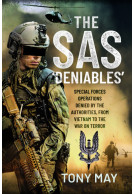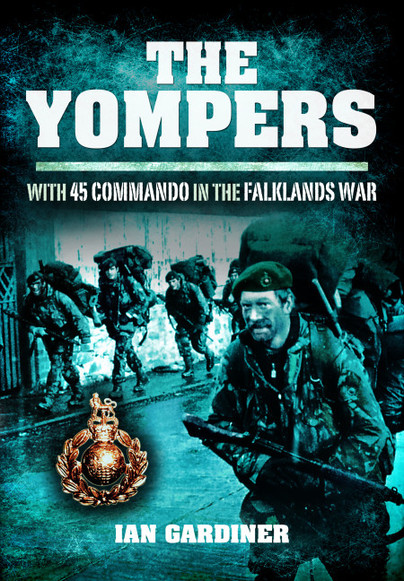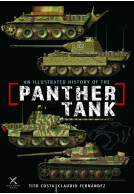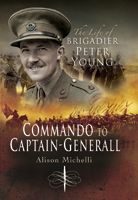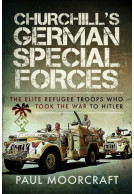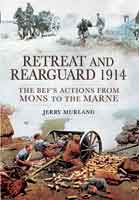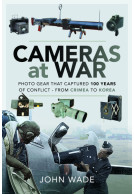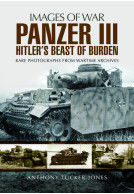SAS South Georgia Boating Club (Hardback)
An SAS Trooper's Memoir and Falklands War Diary
Imprint: Pen & Sword Military
Pages: 256
Illustrations: 30 mono
ISBN: 9781399087766
Published: 14th March 2022
Last Released: 3rd February 2023
(click here for international delivery rates)
Order within the next 9 hours, 18 minutes to get your order processed the next working day!
Need a currency converter? Check XE.com for live rates
| Other formats available - Buy the Hardback and get the eBook for £1.99! | Price |
|---|---|
| SAS South Georgia Boating Club ePub (35.9 MB) Add to Basket | £6.99 |
Many aspire to serve with the Special Air Service, arguably the world’s most prestigious regiment, but few achieve their aim. In this inspiring memoir the author describes how he left school without any qualifications and embarked on a 30 year career much of it spent in Hereford, including four years in ‘The Regiment’. Against the odds he rose through the ranks before being commissioned and eventually retiring as a Major.
Initially attached to 22 SAS as a signaller, he volunteered for and passed ‘Selection’, the most gruelling and demanding of tests. He was posted to D Squadron Boat Troop with whom he saw active service in the Falklands War, Northern Ireland and the UK counter-terrorist team. Thanks to the diary he kept during the Falklands War, the reader is treated to a gripping first-hand account of the intense action that he and his colleagues experienced, including recces, diversionary attacks, raids and ambushes both on South Georgia and the Falklands Islands.
Later he commanded the Royal Signals troop supporting D Squadron, 22 SAS before commissioning and later on pursuing a second career as a security consultant in various Middle Eastern hotspots.
It is a privilege to read this commendably modest account of one man’s unique career which provides a fascinating insight into elite special forces soldiering.
"The book is without any doubt an important contribution to British military history of the post-Second World War period. It provides authentic insight into the operations of special forces... readers will find the book worth the money and the time."
The Northern Mariner/Le marin du nord (Vol. 33, Nos 3 and 4).
This is one of those books that is hard to put down. Once into it with all its military acronyms, the story reveals the way of life of a special forces soldier during his service and afterwards, when the author joins the legion of adventurer former soldiers working in dangerous hotspots of the world.
Surrey Constabulary History Journal
As featured in the article: 'Tony Shaw looks back on career in new book'
Wirral Globe
Full article available at:
https://www.wirralglobe.co.uk/news/20038100.wirral-falklands-looks-back-life-career-one-off-book/
I finished reading South Georgia Boating Club, read the epilogue, closed the cover, and smiled. A really good book. Well worth reading.
Eddie Bairstow
You don't have to have been in the SAS, the Army, or any uniformed service to appreciate this book. You don't have to have served in the Falklands to find it worth reading. It is a book for anyone.
Tony Shaw very quickly recognised what he wanted to do in the Army. He saw what experience and qualifications he needed to gain in order to realise his ambitions. Throughout the book he made himself useful in whatever situation he was in and improved his knowledge by completing an amazing array of courses, often in top positions. He is a great example of the phrase "Carpe Diem" - Seize the Day - recognise opportunities and make the most of them.
He prepared himself thoroughly for SAS selection. His description of the tasks on the selection course give an excellent insight into the reality of what it takes to become a fully-fledged member of "The Regiment".
I was the Royal Navy Education Officer (Schoolie) with 45 Commando Group in the Falklands 1982. It was very informative and interesting for me to read about the SAS activities. For obvious reasons, despite being an operations watch-keeper in 45 Cdo's HQ, I never heard anything about where and what they were doing at the time. Tony's descriptions of the SAS activities on Mount Kent are a great example of what the SAS is designed to do in combat situations, and in deteriorating weather.
The book moves on to his post-Falklands and post-SAS experiences. Once again, it is clear that Tony Shaw gave a lot of thought to what he wanted to do. It concludes with his time working as a civilian contractor and his move back to North West England.
For me, it was a thoroughly enjoyable book and one I would whole-heartedly recommend.
An outstanding book. Written in a crisp, very matter-of-fact manner, almost understated, and devoid of cliches that previous SF books have contained. it was good to gain an insight into what makes an SAS soldier, how SF action in the Falklands War was carried out. Some very good humorous moments which made me grin broadly and laugh my head off while sitting in the library here in Germany.
David Gatenby
A real page-turn, worth every penny. I commend this book to anyone interested in the SAS and what makes an SAS soldier tick.
I was fortunate enough to meet and serve with Tony for a short period of time in the late 80's at 7 Signal Regiment, Herford West Germany. When I first heard about the book release I was keen to read about the life of the humble unassuming man that I met all those years ago. The book certainly informs you that Tony has lived a varied and demanding life both in an out with the military and apart from some of the sacrifices that come from serving your country he seems to have enjoyed every single minute of it. His ability to adapt, improvise and overcome is without doubt and I salute his achievements in life as well as his dedication to his colleagues, Queen and country. Prior to reading Tony's book if you had asked me what football team Tony has supported since he was a young lad growing up near the river Mersey, I would not have had a clue, but if you asked me what kind of missions Tony might have conducted as an SAS Trooper during the Falklands War, I believe that I would have been able to hazard a good guess! However, no matter how many guesses you gave me I do not think that I would have ever been able to guess that one of the tasks during that particular conflict would have been 'pan bash'. Tony's book has that little hint of squaddie humor in it and it is qualities like that I believe would have been a vital asset to Tony throughout his career.
Mel Quin
I would give this book top marks and would highly recommend this book to anyone who enjoys reading about the elite men who have served in the best special forces unit in the world or who simply enjoy reading about other peoples adventures.
God bless Tony, thanks for sharing your life with us and thanks for your service. Mel Quin
First off, I will cut to the chase and say this is a great biography. I have read a few books by some of the guys who were in the Regiment, and this one is right up there with the best ones.
Christopher Watts
Initially the standard SAS story emerged, a tough childhood followed by gravitation towards a military career to escape the dole queue.
I quickly learned Tony is a very intelligent man, having been selected for the Royal Corps of Signals and not The Parachute Regiment due to being 'too bright' which I found mildly amusing.
The main draw for me to these books is the selection process, which I always find fascinating. Tony's account is so far the most revealing one I have read yet.
I knew a fair bit about the initial phase but not the jungle phase, and here you get a very good overall impression of what it was/is really like to pass arguably the toughest Special Forces selection course on the planet.
The meat of the book is his Falklands diary, which I found very interesting, full of small details of how the SAS conducted operations at this time and how they worked in partner with other units such as the SBS.
He goes on to describe his years following his military career, which again left the impression Tony has lived a very full life, travelled the world and learnt many skills.
I heartily recommend this book to all with an interest in the Falklands conflict and the military. Excellent read, thanks for sharing your memories, Tony.
This is not just a book about the Falklands War, this is about so much more. It's also a story of an ordinary kid who joined the army and went on to do extraordinary things in the Royal Corps of Signals, in the SAS, and then continued doing extraordinary things in civilian employment. This personal biography will make you both laugh and cry as Tony talks about his pre-military life, his pre-SAS stories in the Royal Corps of Signals, and then his period with the SAS and civilian life beyond.
Ronny Allan
The section on the war confirms something we all knew, i.e. the forces fighting in that war faced some very tough challenges and many sacrifices were made. But Tony adds first-hand knowledge and detail to those challenges, both physical and mental, along with having to fight a war in some of the harshest environmental conditions ever found. I also found the other sections fascinating making this book one of those which deserves the accolade of 'unputdownable'. Very happy to have a signed copy too.
Was riveted to this book thoroughly enjoyed it not very often you get to hear from the communicators which is of special interest to me have read various books about the Sas in the Falklands campaign and to me this blinds them all but that is only a part of it .it tells of Tony's career before being badged and his career after as an officer carrying on after he left to become a contractor a brilliant read well recommended
Darren Rowe
I expect like most people, it was the chance to learn about Tony Shaw's experiences during the Falklands War that made me want to read this book. But there's much more to his autobiography than that. It's the story of the life and career or a pretty extraordinary man.
Pete Hurren
I understand that Tony wrote the book himself without the assistance of a ghost writer, and I think the book is much the better for that. It makes one feel closer to the story, the words, knowing that they come direct from the author.
The fairly brief section on Shaw's formative years gives many clues about what kind of man he was to become.
Obviously his Army career forms the lion's share of the book, with his time in the Falklands War at its core. We are fortunate that he had the foresight to keep a war diary at the time, and so when we reach the point that he sails for the Falklands, the book changes into diary format.
This works very well, as every diary entry is reproduced in full and then expanded upon with more detail and hindsight on the events, if required. This lends a real immediacy to the text and draws you right in. I know it's a cliche, but it makes you feel like you're right there with him. One can vividly imagine him sat in a corner on a Royal Navy vessel or elsewhere, writing out that day's diary entry.
Tony was involved in many well known events of the war and presents them to the reader with great clarity. He doesn't overwhelm you with unnecessary detail, and this brevity keeps the book rolling along at an excellent pace. Unlike many other SAS autobiographies, he is honest and incredibly modest about his own part in events. You really get the sense that he's telling it exactly as it happened, and has no interest in bigging himself up.
Tony's post-SAS Army career and civilian career are both also covered, and give insight into one of the things I will most remember this book for - his incredible ability to expand his mind, learn new skills and take on new challenges.
This is a fascinating read from cover to cover, and I highly recommend it - not only for those with an interest in the SAS and the Falklands War, but also as an engrossing tale of the life of a man who made the very best use of his talents.
There are many Special Forces memoirs, many notable for the quality of writing as well as the adventures therein. Some talk about life in the military and the utilisation of skills, for example on 'the circuit' e.g. Born Fearless by Phil Campion, whilst Ollie Ollerton in Break Point describes how complex planning and logistical skills learned in the SBS were ploughed into anti child trafficking work in Asia and successful entrepreneurship.
Julian Patmore
But what makes Tony Shaw's book stand out is the way it conveys the essence of the Special Forces ethos: the pursuit of excellence. Alongside the brutality of learning to TAB SAS style to initially become an attached signaller before being badged, Tony describes the intense level of work required to move up the technical ladder in the Royal Signals. The eye opener was just how complex and varied the role is, how hard it is to reach the level of Yeoman and how many courses and the mastery of Tony's antithesis 'maths' were necessary to get him all the way from Trooper to Major.
Added to the compelling account of his Falklands War using verbatim diary entries fleshed out with theatre level context, that graphically but ungratuitously describe the rigours of the land battle and the terror of being aboard ships under constant air attack and the loss of colleagues in a helicopter crash, alongside covert tours of Northern Ireland, we have a picture of a dedicated and courageous fighting soldier working at the cutting edge of technical communications advancement committed to constant personal evolvement.
Tony was able to use his skills after the military on the technical side of 'the circuit' and in many civil contractor roles across the world, but sadly, as it turned out, not in the UK.
This book earns it place in the canon of SF memoirs as a standout example of just how much work goes into not just passing selection, but the total dedication and personal drive required to constantly acquire and deploy new skills whilst in the regiment. Superb.
SAS, South Georgia boating club.
Andrew Mooney
By Tony Shaw.
I served for a few years with Tony in 604 signal Troop and whilst there saw, although I cannot say I knew what it was at the time, Tony’s focus on whatever he was doing at the time.
That focus seems to have guided him through an excellent career and post service life.
It stands out that his time with special forces was the time he not only enjoyed most but that he was seemingly made for.
The diary of his Falkland experience gives an insight to the troopers war. It is well written and easy to read.
I thoroughly recommend the book and any young recruit would do well to copy Tonys simple recipe of hard work and attention to detail
This is a great read and I highly recommend it regardless of whether you have served in the military or not; if you served you do not need to have been as elite a soldier as Tony was to enjoy the book. The Falklands War diary section is insightful and provides a good description of the events of forty years ago. His journey from a small town in England to then travel the world is fascinating and well logged. From a more personal perspective I learnt about the book on a Royal Signals Facebook page, but then to read about the regiments he served in outside of the SAS was of great interest.
Nick Watkins
For me this is ranked as 5 out of 5.
Unusually for me, once I had picked up the book I couldn't put it down for long before having to reach for it again.
Tristan Lang
A great deal of the terminology and Royal Signals side of things along with some of the operating systems and equipment
along with Royal Signals life in general made total sense to me.
The author comes across a very modest, determined and focused man, exactly what set him up for numerous promotions
within the Corps and to serve in the SAS.
Hidden or played down is the hard work, drive and mindset both physcially and to attain the various courses both in the military and civilian life to achieve his goals.
A great read for anybody, highly recommended.
Tris Lang
I was 19 years old (20 years old 2 days later) when the Argentine military came to our islands. My sister and myself moved to my uncle’s farm at Estancia House then later I moved to Port Louis and Brookfield Farm. I had been out on the night of 1st/2nd April with the Falkland Islands Defence Force. Our family home in Stanley was made of concrete so was designated a safe house and at night-time many local families stayed there with my parents for safety. Boat Troop sent a patrol to Estancia House from Mount Kent and that was when the SAS first bumped into some of my family members and came into our lives as true friends of the Falklanders. They also came into our home in Stanley just after liberation day on 14th June. Tony's book has brought back some memories hidden deep in my psyche and it has been a pleasure to read of the Troop's exploits after all these years. I thoroughly enjoyed reading the book and can recommend it to anyone who would wish to know what it was like trying to fight a war, not only against the enemy but also against the weather. It was great to find out things I had not known about many of the Boat Troop I met during 1982 and had the privilege of meeting up with a few years ago in UK. Derek Pettersson
Derek Pettersson
I grew up in the docklands of Barry and Cardiff and like Tony, I knew the hard knocks of childhood and youth in that environment. Hard times, but there was a sense of belonging and joy in the friendships and adventures we had along the way. The effect this has on your future life is clearly depicted in Tony’s book.
Chris Claypole
I had the honour of serving with Tony, in fact, I was one of those who helped out on the courses when he arrived in the big “H”, Hereford, and knew immediately that he was going to be a strong, tough and valued member of any organisation he chose to join. His honesty and integrity shows throughout his writings.
I refused to read quite a few of the books written by erstwhile members of the special forces for professional and personal reasons. But I just had to read Tony’s book. He writes with humility and total honesty and as he claims in his foreword – if you are looking for exaggerated acts of heroism and derring-do then this is not the book for you.
However, if you are a future candidate for Special Forces, military, ex-military or simply have an interest in either the Falkands War, Special Forces, or indeed the life of a remarkable man, then this is an absolute ‘must-read’.
This book describes Tony’s journey from youth through some of the hardest tests and hardships known to man; he draws the reader with him along his path.
I could not put this book down, it reminded me of things I had nearly forgotten; history as it was being made. The beautiful way Tony writes – often humbly playing down his role makes this book one which you will want to read, to loan, to get your grandchildren to read and to keep.
Well done, Tony, full marks for this masterpiece.
A MUST READ FOR EVERY YOUNG, WANNABE SAS TROOPER, AND MANY AN OLD SOLDIER TOO …
Christopher Harden
I was lucky enough to serve with inspiring, ‘grey’ men like Tony Shaw and the late Jim Drummond during their exceptional careers … and to receive a signed, pre-release copy of his memoirs entitled: SAS - South Georgia Boating Club.
Having served during these times, I'd often wondered, “how did that come about then?”, and some of those questions are now answered.
A hugely enjoyable jaunt down memory lane for me and I heartily commend Tony’s autobiography as a must read for servicemen and women of all arms, present and past.
I cannot recommend this book enough.
Gary Coupe
I was fortunate enough to have served indirectly with Tony as a young Royal Signals soldier in BAOR back in the late 80’s and fortunate again to get a pre-released signed copy from him personally just recently. Having some idea of his past I was excited to read his story and I was not disappointed.
This book is an absolute tour de force, beautifully written and charting his life in his own words from his childhood in Merseyside to joining the Royal Corps of Signals at 15 and eventually going on to pass the famously gruelling Special Air Service selection course first time and serving as an SAS trooper in ‘The Regiment’.
The core of this book is Tony’s gripping first-hand account of his time in the very thick of the fighting as a member of Boat Troop SAS during the Falklands War. This action - recounted from a diary Tony kept during the period - saw his involvement in the liberation of South Georgia and the tragic loss of a number of his comrades also from within the SAS. This incredible, high octave account takes the reader through the highs, lows, dangers and extraordinary challenges faced by those fighting in some of the harshest environmental conditions ever fought. It also highlights the horrors experienced and sacrifices made by those on the ground.
The book goes on to document Tony’s life within the military after the War and his subsequent adventures since.
Tony remains a modest, and unassuming but is a remarkable man with an incredible life story and this book deserves to be up there with the military greats.
When Tony asked if there were any photographs that he could use in his forthcoming book I knew it was only a matter of time before it came to fruition. He always strived for the best in all that he did and this comes across in his book. It is an authentic voice detailing his life from childhood through joining the Army to eventual selection for the Regiment and commissioning in the Royal SIgnals. His attitude and approach tinged with that particular soldier’s sense of humour comes across in every page and is a very enjoyable read. There is much in his life that I was never aware of until now and it explains a great deal of what motivated him throughout his career. An excellent addition to the annals of a particular conflict and one mans journey through it. Five stars from me.
Pat O'Connor
Tony first came to my attention when he articulated his plans on various social media groups
John Smith
I quickly arranged for an early copy, and took it away on holiday to read. It’s a very compelling story of life’s struggles from hard lessons learnt at school to becoming a member of the worlds most elite special forces. It is well written, compelling and justifies his Journal writing at the time!
As he so eloquently put its there is no such thing as an ordinary trooper and this story is no ordinary reflection of someone’s desire to become the best that they can
Having served with Tony in 604 Signal Troop this book had an added interest for me. I read the book in 2 days and found it absolutely gripping. A completely modest and understated account of an ordinary guy achieving extraordinary goals. A fitting tribute not only to Tony but to all those unsung heroes who wear the "Winged Dagger". I have no hesitation in highly recommending this book and awarding it 5 stars or 10 out of 10 whichever measure of excellence you apply.
Alan Knott
I was lucky enough to get a pre released signed copy direct from the author.
Simon Pell
The book is the life of the author from starting life in Birkenhead though his service with the Royal Corps of Signals to his SAS Selection and service, to commisioning and finally life after the military as a civilian contractor.
I got drawn in straight away to his career in the military.
A fascinating insight into a long and proud career with the SAS and Royal Corps of Signals. The highs and lows of a war and battle with comrades lost and new ones made.
I highly recommend putting time aside to read and digest the life of the author.
Allow your thoughts take you through his life and be grateful that people like him and his comrades in arms put their lives in the line on a daily basis, as seen in this book.
I would give this 5 out of 5 and highly recommended.
About Tony Shaw
Tony Shaw joined the Royal Signals aged 15 as a junior entrant at the Army Apprentice College, Harrogate. He volunteered for 264 (SAS) Signal Squadron and after four years attached to D Squadron 22 SAS and qualifying as a parachutist, passed Selection in 1980. He returned to D Squadron spending four years with 17 (Boat) Troop, serving in Northern Ireland and the Falklands. In due course he went on to spend three years commanding D Squadron’s Signals Troop.
During his military career he learnt five languages and was promoted through the ranks to WO1 and was commissioned in 1991. After retiring as a Major in 1999 he pursued a second career as technical and security specialist in the Middle East.
A lifelong Tranmere Rover supporter, he enjoys mountain walking and running.
The Yompers With 45 Commando in the Falklands War (Hardback)
'Yomping' was revealed by the journalist Charles Laurence in 1982 as the word which the Royal Marines used to describe carrying heavy loads long distances on foot. Given the intense public interest in the dramatic events then unfolding in the South Atlantic, it caught on and is now in common usage. The Yompers is the first account to be written by a company commander who fought in the Falklands War. Called to action from their beds early on 2 April 1982, the author along with the rest of 45 Commando Royal Marines, sailed 8,000 miles to play a key role in the recovery of the Falkland Islands from…
By Ian GardinerClick here to buy both titles for £40.99
